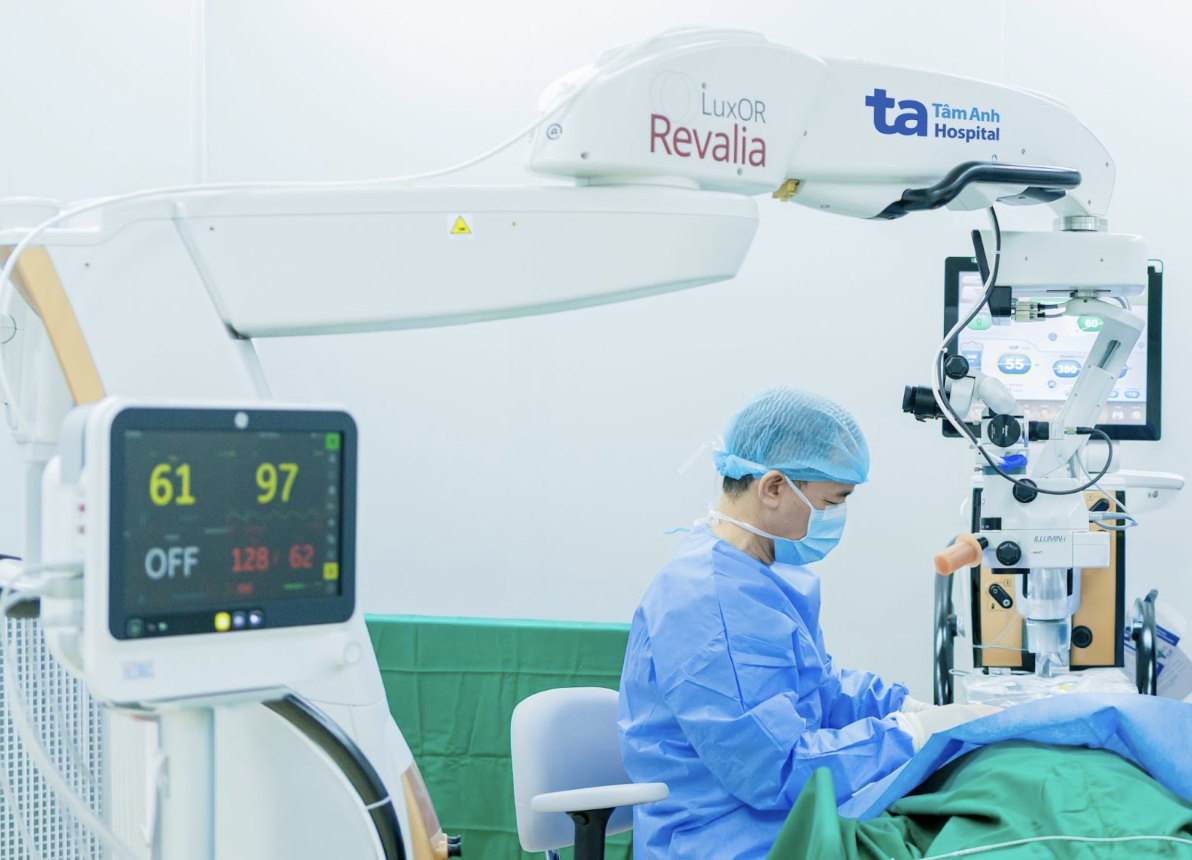Answer:
Severe myopia, especially when prolonged over many years, is a risk factor that increases the likelihood of developing other eye diseases such as cataracts, retinal detachment, and glaucoma. Compared to those without myopia, individuals with high myopia (above 6 diopters) have a roughly three times higher risk of developing cataracts earlier and treatment is also more complex.
According to clinical and epidemiological studies, individuals with severe myopia (above 10 diopters) have a higher risk of developing early cataracts compared to those with mild myopia, particularly posterior subcapsular cataracts and nuclear cataracts in the central region. One of the mechanisms causing the disease is the abnormally long eyeball, which alters the flow of aqueous humor, leading to metabolic disorders in the lens. Chronic oxidative stress also affects the lens capsule and nucleus, along with reduced blood supply due to choroidal atrophy and retinal degeneration, which are commonly seen in individuals with long-term severe myopia.
Posterior subcapsular cataracts can significantly reduce central vision even when the cataract is mild and often cannot be improved with glasses. Therefore, earlier surgery helps maintain vision quality.
People with severe myopia, especially after the age of 30, should be regularly monitored not only for retinal conditions but also for lens conditions. In-depth examinations such as fundus examination, optical coherence tomography (OCT) of the macula and optic nerve are essential, even if vision has not significantly decreased.
 |
A doctor performing cataract surgery. Photo illustration: Tam Anh General Hospital |
If you experience unusual blurred vision, especially if it doesn't improve with glasses, you should seek timely specialist examination to avoid missing potential damage. Proper eye care, such as wearing UV-protective sunglasses, consuming antioxidant-rich foods, avoiding smoking, and managing chronic diseases, also plays an important role in slowing cataract progression. Proactive eye exams and adherence to the doctor's instructions can help protect your vision.
Dr. Tang Ngoc Anh
Deputy Head of Ophthalmology Department, High-Tech Eye Center
Tam Anh General Hospital, Ho Chi Minh City
| Readers can submit questions about eye diseases here for doctors to answer. |












